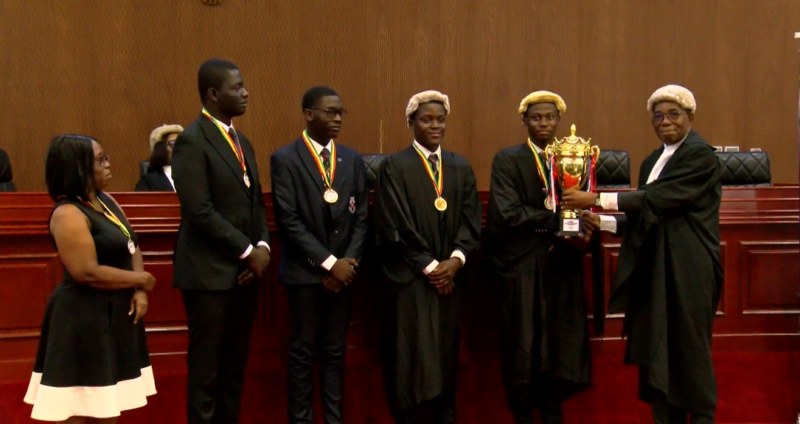In a fiercely contested and highly riveting final stage, this year’s edition of the Ghana Secondary Schools Moot Court Competition concluded at the Accra High Court between the two greats; Presbyterian Boys’ Secondary School, Legon (Presec-Legon) and the Achimota School, with the Presby boys clutching the ultimate trophy in the end.
The final stage of the 2024 Moot Court Competition held on Saturday, August 24, was presided over by His Lordship John Bosco Nabarese, Her Ladyship Justice Mavis Akua Andoh (Mrs.), and Her Ladyship Ellen Lordina Serwaa Mireku.
At the commencement of the finals, the bailiff, Golda Amegashie, announced that the case to be heard was on the matter of the Child Education Watch against the Attorney General, the Minister for Education, and the Ghana Education Service, pertaining to the issue of neglect of duty in providing quality education to Ghanaian children in a hypothetical high school called the Bodipo Senior High School.
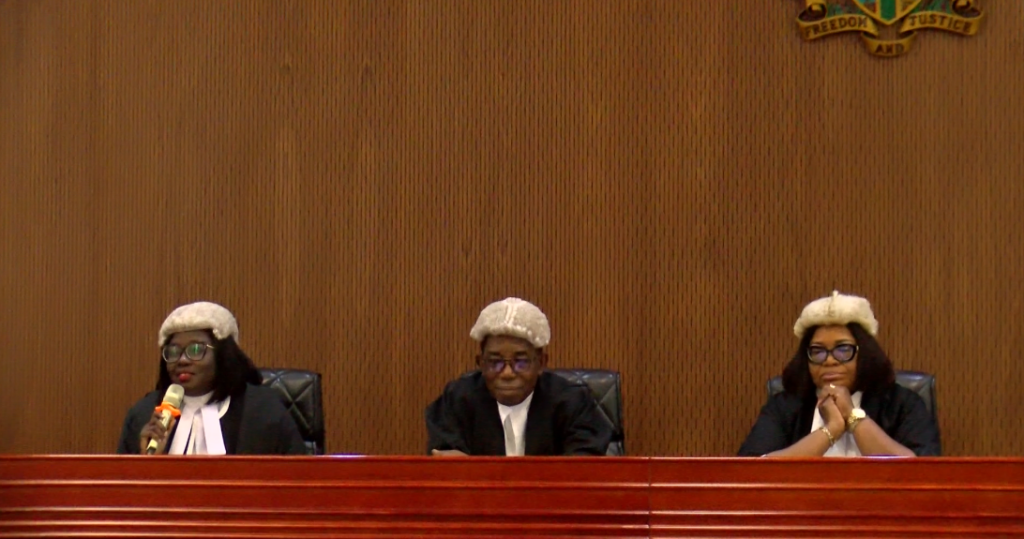
Some of the challenges the school faced since the inception of the free senior high school policy included the congestion of dining halls, dormitories and classrooms, insufficient and low-quality meals served in the dining halls, as well as the overburdening of teachers as a result of the double track system.
Counsel for the plaintiff introduced themselves as; Kesseh Esli Kojo, Lord Edwin Osei Agyemang, Alan Owusu Sarpong, and Dennis Dawfor from the Presbyterian Boys’ Secondary School, Legon, while counsel for the defendants introduced themselves as Amankwah Kojo Nyamekye, Akosua Addae Tamia, Judy Ofori Nyamekye, and Daisy Jahel from the Achimota School.
Kesseh Esli Kojo and Lord Edwin Osei Agyemang, the counsel for the plaintiff, opened their case by citing their main arguments as relating to the contention of whether the Supreme Court was the right court of adjudicature and the justiciability of the case at hand. Counsel for the plaintiff maintained that the Supreme Court of Ghana was indeed the appropriate forum for the adjudication of this particular matter.
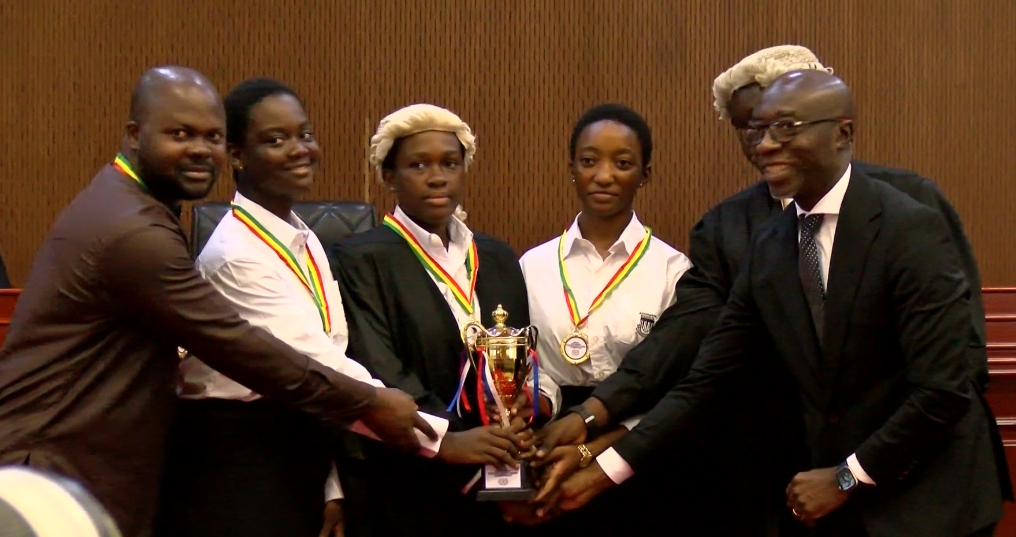
They buttressed this point on the stipulated provisions of the 1992 constitution of the Republic of Ghana, which prescribed the Supreme Court of Ghana as the appropriate court for all issues pertaining to the enforcement and interpretation of all provisions made in the constitution, and also for all issues pertaining to public rights or interests.
Another issue of contention, which was the justiciability of the case in question, was duly affirmed as justiciable by the counsel for the plaintiff. They reinforced this assertion by referencing previous cases which were similar to this particular case in question.
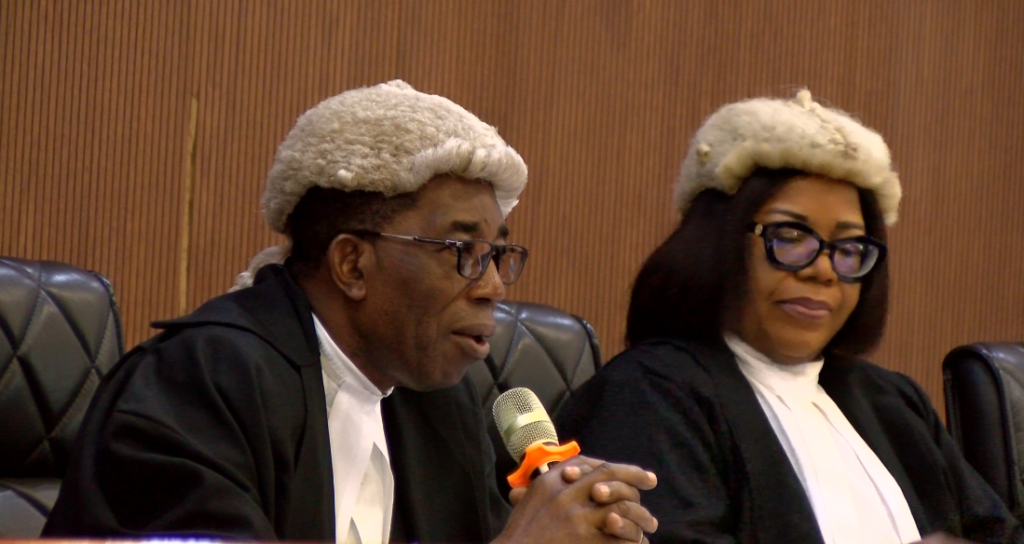
The plaintiff’s next assertion was on the basis of the violations of Articles 35(3), 38(1), and 36(2)(d) of the 1992 constitution of the Republic of Ghana. In essence, counsel for the plaintiff was going to demonstrate how the action of the government constituted the breach of the fundamental rights to education especially for inhabitants of rural areas as compared to their urban counterparts.
“Your Lordships, it is the submission of the plaintiff that the actions of the government invalidates the two conditions given within these extracts; that one, the right to education must be equivalent and they must get access to opportunities for educational advancement, and two, that they must have access to the same educational facilities in order to achieve that purpose. It is the submission of the plaintiff that as evidenced in paragraphs 11 and 12 of the facts of the case, we are made aware that students of the Bodipo Senior High School are left with no facilities or infrastructure so as to fully realize their rights to education. It is the submission of the plaintiff that this lack of infrastructure invalidates the second condition given within the quoted extracts."
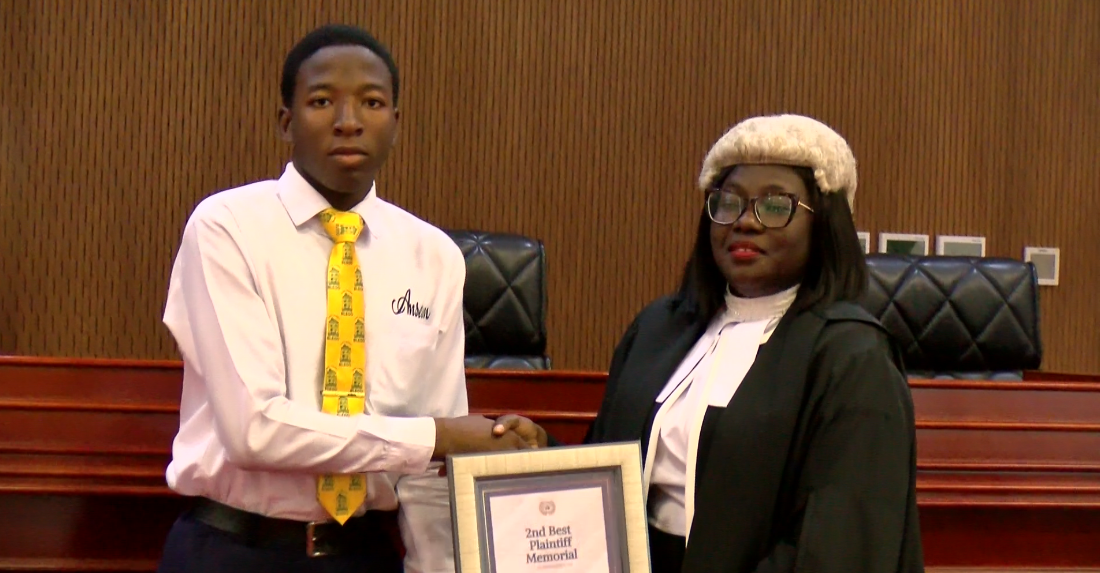
"Additionally, Your Lordships, if you would turn with me to paragraph 5 of the facts of the case, in lines 7 and 8, we are made explicitly aware that the lack of such facilities significantly hinders teaching and learning processes, and as a result, academic progress is significantly hindered. It is therefore the submission of the plaintiff that this condition further invalidates the first condition given, which provides that every Ghanaian citizen must be given equal rights to educational advancement”, Lord Edwin Osei Agyemang, counsel for the plaintiff, opined.
The counsel for the defendant, who were contestants from the Achimota School and were in the persons of Amankwah Kojo Nyamekye and Akosua Addae Tamia, also presented their case. They presented their arguments regarding the contention of whether the Supreme Court was the appropriate forum to adjudicate this matter as well. They maintained that the jurisdiction of the Supreme Court of Ghana had not been properly invoked in this matter. Their reasons were that the High Court was the more appropriate forum to preside over this matter, and that the case in question was not justiciable. They pointed out three justifications.
“Firstly, this case is centrally a human rights’ case and is cognizable under the High Court’s jurisdiction. Secondly, the High Court has a jurisdiction to enforce the fundamental human rights and freedoms guaranteed under the 1992 constitution. Thirdly, we submit that there is no need for interpretation of the constitution arising in this regard. Turning around to my first argument, we submit that this matter is centrally a human rights’ issue which is cognizable under the jurisdiction of the High Court.
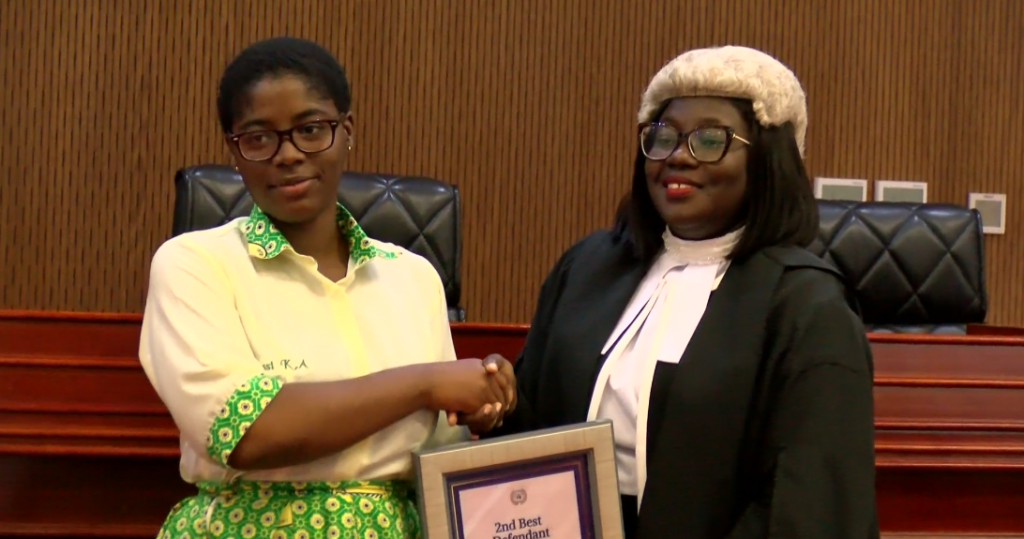
"We submit that this action is largely of human rights jurisdiction and it is the cardinal principle of constitutional law that where a plaintiff brings a matter under articles 21 and 130(1) and the objects and effects of the reliefs sought by the plaintiff constitute a cause of action within the jurisdiction of another court or tribunal, this court will decline jurisdiction. We submit that the High Court has the jurisdiction to enforce all matters relating to fundamental human rights”, the counsel for the defendant avowed.
The contestants from the Achimota School, who were also representing the defendants argued the justiciability of the matter in question, since there was no need for constitutional interpretation on the matter. Deriving from previous cases similar to the one at hand, they supported their claim that the rights to education had already been clearly defined, hence there was no need to adjudicate the matter anymore.
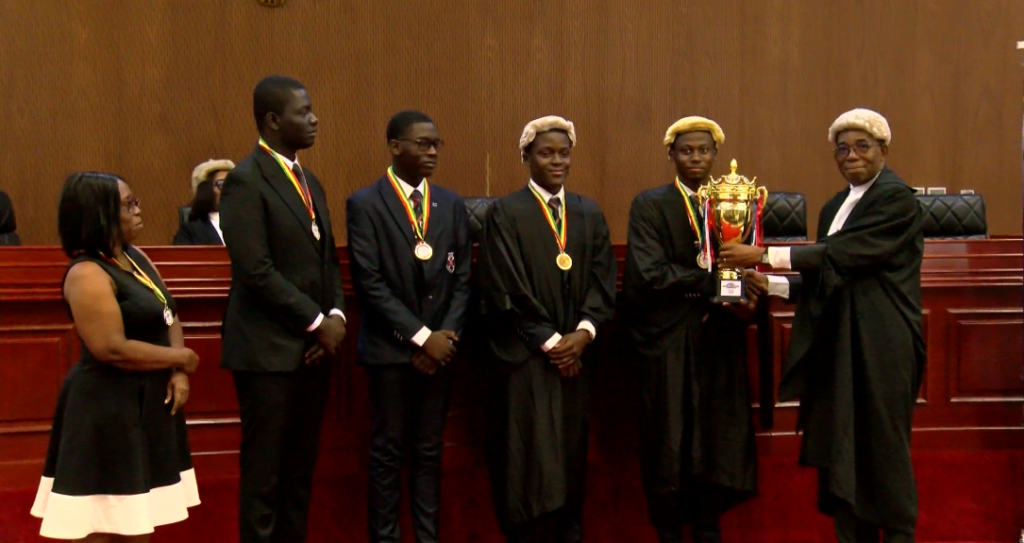
The counsel for the defendants again maintained that the government had not breached any of the provisions of the 1992 constitution upon which the counsel for the plaintiff based their argument, since the lingua adopted in its expression was simple, clear and unambiguous.
Their final argument was that there had indeed been no breach of the right to education, since the provision in the 1992 constitution did not confer an absolute right to education. Instead, it was subject to the considerations of the state’s capacity and the availability of resources, which the state was currently lacking.
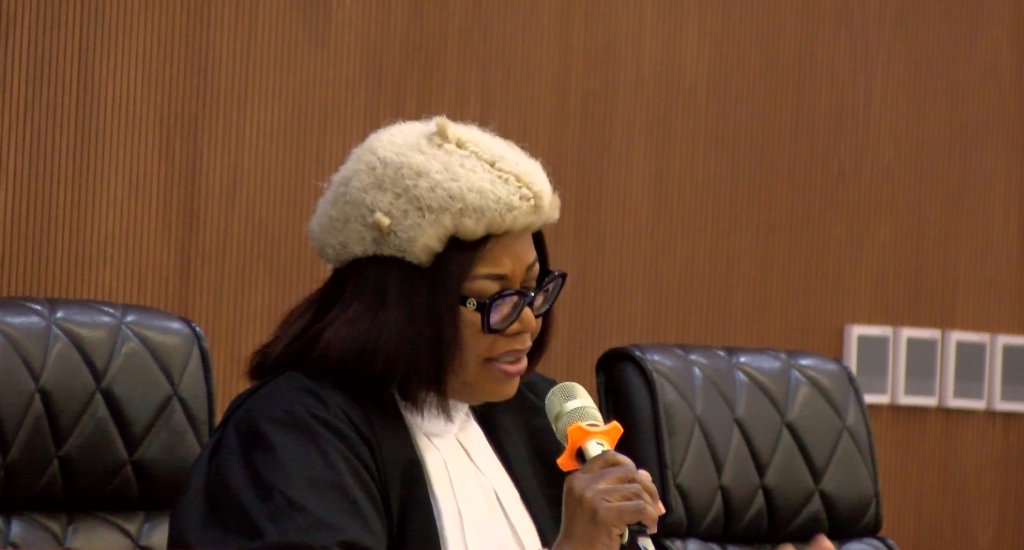
These submissions from members of each counsel were then followed by ensuing rebuttals, after which the court was adjourned and the judges were excused to deliberate on the matter. After a few moments, the court resumed.
Professor of Law and Chair of the Organizing Committee of the Ghana Secondary School Moot Court Competition, Prof. Appiagyei Atuah, delivered a few remarks before the award-winners were announced.
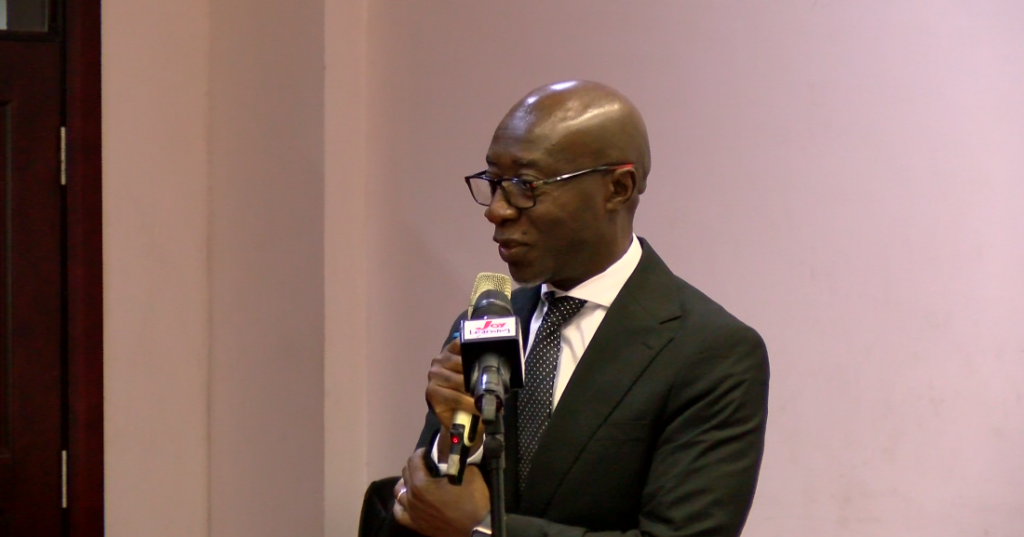
“My Lords, we very much appreciate your time to sit over the case and the advice you have given to our budding lawyers. We are very much grateful. To the participants, we appreciate the good effort you put into the work. It shows the level of interest. It also shows the fact that you put in the time and effort to know the cases, to know some procedures, and to put up a good performance. I think the advice that was given by the Justices are also very appropriate, and we believe that you will not say that, well, I took part in the competition and that is it, because we believe that you are well on your way to getting into any of the law schools in the country to pursue a degree in law. So the advice would still come in handy, somewhere along the line.
"There are a lot of moot courts waiting and the actual practice of the law when the time is up. We also want to thank your teachers and trainers for the good effort they put in, and we appreciate the time and energy that went into that as well. For those that took part, we are very grateful and we appreciate the time and effort you put in. Like my Lord said, and I also said yesterday, we are all winners. The fact that you took part in it means you’ve learnt something new, and what you learnt is the winning tag that we are talking about. And so don’t feel that because you didn’t win, you shouldn’t have even taken part in it. You’ve learnt a lot, and I’m also talking about networking and developing relationships. This is a learning curve, and you ought to take it seriously. Be proud of yourselves too,” he concluded.
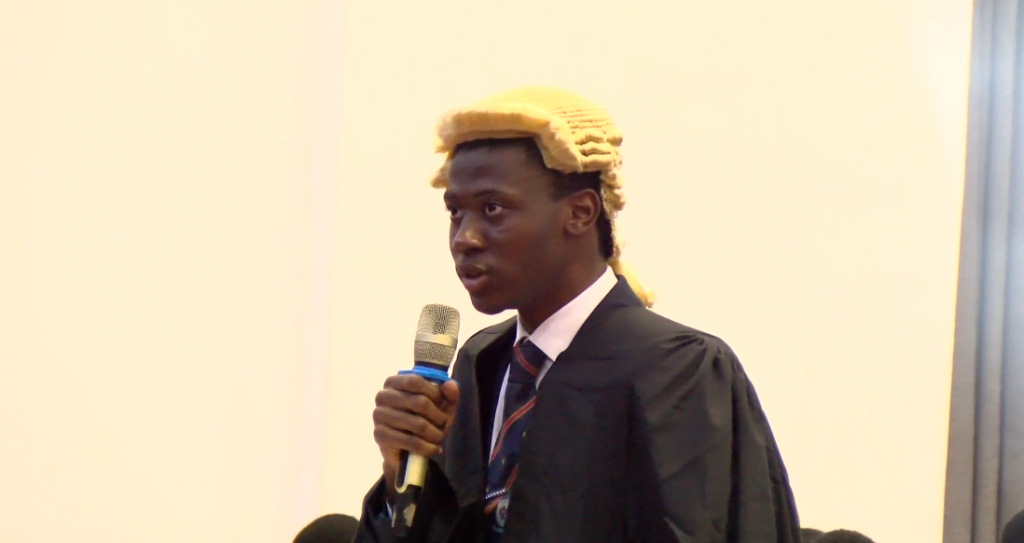
Accra Academy won the second-best Plaintiff Memorial Award, while Aburi Girls’ Senior High School won the second-best Defendant Memorial Award.
Achimota School and St. Francis Xavier Senior High and Minor Seminary won the Best Defendant Memorial Award and the Best Plaintiff Memorial Award respectively.
The overall best Memorial or Written Submission was awarded to Krobo Girls’ Presbyterian Senior High School. The Best New School Award was awarded to Prempeh College. Lord Edwin Osei Agyemang (Presec-Legon) once again won an award as the Third-best Orator.
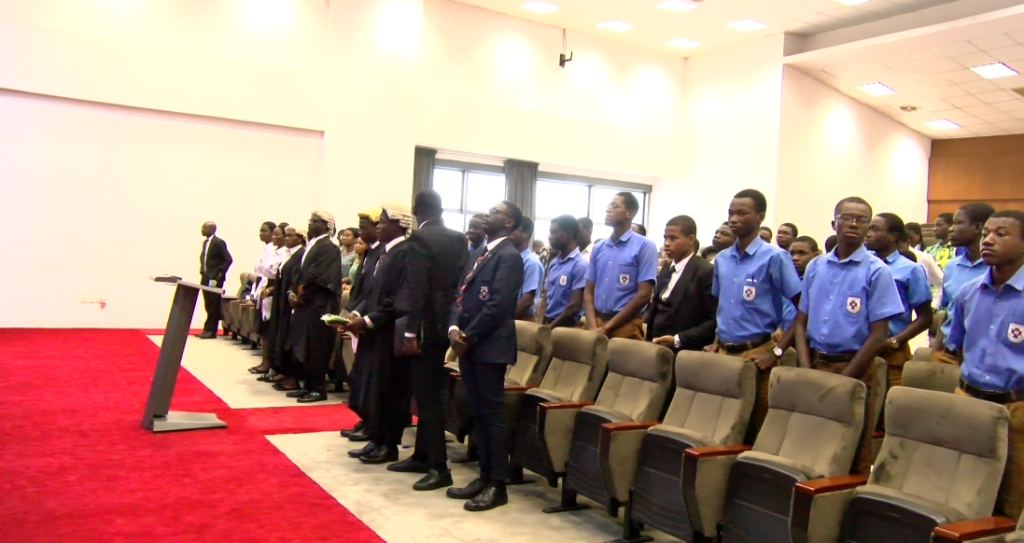
Second-best orator was awarded to Amankwah Kojo Nyamekye (Achimota School). The award for Overall Best Orator was given to Akosua Addae Tamia (Achimota School).
Finally, counsel for the plaintiff (representatives from Presec-Legon) were adjudged the ultimate winners.
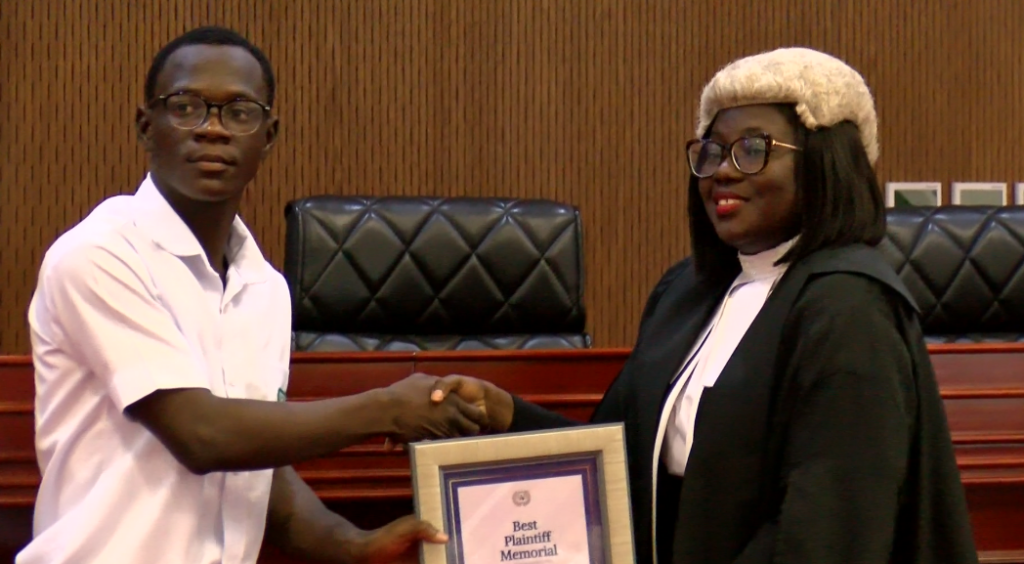
The Ghana Secondary School Moot Court Competition started in 2017, and it seeks to engender in high school students a profound affinity for the law profession.
Latest Stories
-
Energy Commission drives youth innovation at 2025 Renewable Energy Challenge
2 hours -
Troskit apologises after delivery glitch sparks outrage
2 hours -
Shaggy credits God for ‘It Wasn’t Me’ as he reflects on career, culture and service
2 hours -
Energy Commission pushes for commercialisation of student innovations
2 hours -
California doctor to plead guilty to supplying Matthew Perry with ketamine
2 hours -
Gov’t appeals for logistical support to evacuate Ghanaians amid Israel-Iran conflict
3 hours -
Health Ministry inaugurates committee to boost pandemic preparedness
3 hours -
Government pledges more incentives for Ghana’s auto assembly sector
3 hours -
National Service allowances to be increased in next service year – Director-General assures
3 hours -
NPP constitutes 9-member committee to spearhead National Delegates Conference
4 hours -
NPP slams police over delay in Ablekuma North collation, accuses NDC of obstruction
4 hours -
Gov’t must invest in local industry and patient capital to sustain economic gains – Coconut Grove Regency CEO
4 hours -
I’m not pro-state, my judgement is guided by law – Justice Bartels-Kodwo
4 hours -
NPP to elect 2028 flagbearer on January 31, 2026
4 hours -
Ahwoi family mourns their sister, Ama Adoma Bartels-Kodwo
4 hours

